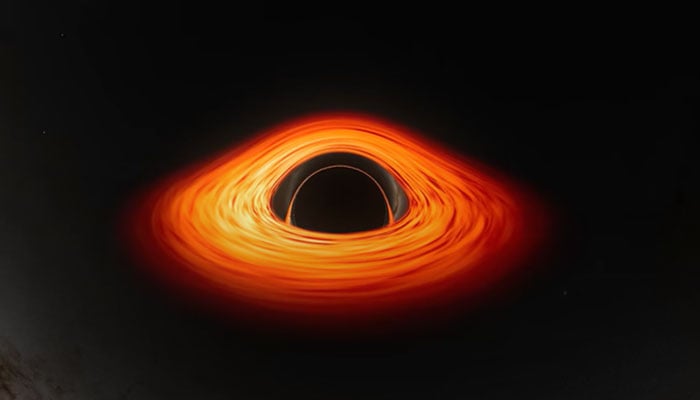Black holes can't be made from pure light: Here's why
Scientists have been trying to form black hole from pure light, but it seems impossible feat
A new study has discovered that black holes can’t be formed from pure light as quantum physics would limit their creation under any foreseeable conditions.
Matter is usually responsible for black holes. They are also often formed when a star’s core tumbles at the end of its life. However, matter is not essentially required to form a black hole, reported Science News.
Black holes could form from concentrated energy alone, as per general theory of relativity.
Meanwhile, a black hole that is formed from electromagnetic energy — also known as light — is called a kugelblitz. Interestingly, for decades, that concept has been jangling around in physicists’ brains.
But in reality producing a kugelblitz seems to be a no-go, theoretical physicist Eduardo Martín-Martínez and colleagues report in a paper, that was accepted to Physical Review Letters.
"No known source in the current universe would be able to produce it, neither artificial or natural," said Martín-Martínez, of the University of Waterloo in Canada.
That concept is "a very interesting thought," says theoretical physicist Juan García-Bellido of Universidad Autónoma de Madrid, who was not involved in the new study, “especially if we want to produce something like this in the laboratory.”
Previously, scientists have also considered whether futuristic lasers might one day form a black hole in a lab. They even proposed using a kugelblitz to power a spacecraft.
-
Dutch seismologist hints at 'surprise’ quake in coming days
-
SpaceX cleared for NASA Crew-12 launch after Falcon 9 review
-
Is dark matter real? New theory proposes it could be gravity behaving strangely
-
Shanghai Fusion ‘Artificial Sun’ achieves groundbreaking results with plasma control record
-
Polar vortex ‘exceptional’ disruption: Rare shift signals extreme February winter
-
Netherlands repatriates 3500-year-old Egyptian sculpture looted during Arab Spring
-
Archaeologists recreate 3,500-year-old Egyptian perfumes for modern museums
-
Smartphones in orbit? NASA’s Crew-12 and Artemis II missions to use latest mobile tech












